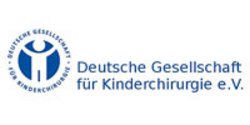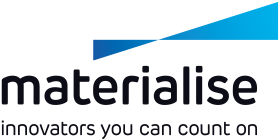3rd International Symposium on Pediatric Medical Devices
3rd International Symposium on Pediatric Medical Devices
Virtual & Augmented Reality in child health
Day 2 | February 16, 2021
Virtual and Augmented Reality are increasingly used in medicine. The speakers will present medical technology solutions for different areas of pediatric medicine (pediatrics, surgery, global health, etc.). The current available evidence of VR and AR in pediatrics and pediatric surgery will be presented and reviewed. Concepts and possibilities for implementing VR into “clinical reality” will be discussed.
Chairs:
Dr. Judith Lindert | Universitätsklinikum Schleswig-Holstein, Campus Lübeck, Lübeck, Germany
Prof. Dr. Tilo Mentler | Hochschule Trier, Trier, Germany
| CET | EST | Title | |
| 14:00 | 08:00 AM | Opening | |
| Scientific Session 1 | |||
| 14:10 | 08:10 AM | Child centered VR Prof. Dr. Tilo Mentler | Hochschule Trier, Trier, Germany | |
| 14:25 | 08:25 AM | Checklist for the process and demand-oriented implementation of a virtual reality concept in a children’s hospital Dr. Kathrin Kelly | Universitätsklinikum Schleswig-Holstein, Campus Lübeck, Lübeck, Germany Nadine Flegel | Hochschule Trier, Trier, Germany | |
| 14:45 | 08:45 AM | Hygiene protocol for clinical VR applications in times of COVID-19 Dr. Constanze Born Kristina Bäsler | Universitätsklinikum Schleswig-Holstein, Campus Lübeck, Lübeck, Germany | |
| 15:05 | 09:05 AM | Break | |
| Scientific Session 2 | |||
| 15:15 | 09:15 AM | VR for the MRI Dr. Oliver Basu | Universitätsklinikum Essen, Essen, Germany Stefan Liszio | Universität Duisburg-Essen. Duisburg, Germany We present the concept, design, and evaluation of a playful mobile virtual reality (VR) app for children to reduce anxiety and stress during MRI examinations. The "Pengunaut Trainer" aims to help children familiarize themselves with the medical environment so they can be examined without fear, rendering sedation unnecessary. The patients learn about the procedure and train to remain motionless during a virtual MRI scan. We conducted a one-year clinical trial to evaluate the game design and efficacy of our intervention. The participants reported improved feelings towards the upcoming MRI examination and experienced less anxiety and more positive feelings during the scan. Our results and the positive feedback from parents, medical professionals, and media experts support the validity of our approach. | |
| 15:30 | 09:30 AM | VR and procedural pain Dr. Søren Walther-Larsen | Rigshospitalet, University Hospital of Copenhagen, Copenhagen, DK Procedural pain is a cause of significant pain and anxiety in children. In a Danish survey more than half of children in pain during their hospital stay mentioned procedural pain as a significant source. Distraction is a powerful measure in modifying the pain experience. In this contribution to the webinar Virtual Reality VR is presented as a novel measure in distraction and an innovative way of improving the experience for the child especially during painful procedures. | |
| 15:50 | 09:50 AM | VR interventions in pediatric mental health Dr. Anna Felnhofer | PedVR Lab, Medizinische Universität Wien, Wien, A Although virtual reality (VR) application have received considerable attention in adult patients, their usage in treating children and adolescents with mental health issues is lagging behind. Hence, this presentation set out to introduce several VR interventions which are currently being developed or have recently been evaluated specifically for children and adolescents. In particular, virtual reality exposure therapy (VRET) tools for the treatment of specific phobias, eating disorders and autism spectrum disorders, as well as VR-based biofeedback applications and serious games for patients with ADHD are introduced. Finally, specific challenges of using VR in children and adolescents are discussed. | |
| 16:10 | 10:10 AM | Break | |
| Scientific Session 3 | |||
| 16:20 | 10:20 AM | VR for team training and surgical training Prof. Dr. Chris Paton | University of Oxford, Oxford, UK | |
| 16:40 | 10:40 AM | Computer Vision and Graphics for Mixed Reality in the Operating Room Prof. Dr. Lüder Kahrs | University of Toronto, Ontario, CA Computer vision and graphics methods are building the foundation for successful development of Mixed Reality applications. Virtual Reality is a great tool to plan or train a surgical procedure, while Augmented Reality (AR) has the potential to assist intraoperatively. Providing a precise overlay of virtual objects in the actual real environment is a particular challenge of AR applications which requires advanced methods for registration and tracking. In this talk, I will discuss research results of Virtual and Augmented Reality in the surgical context. These are exemplified within the domain of head (ENT, craniofacial, reconstructive) and abdominal surgery. | |
| 16:55 | 10:55 AM | VR training and simulation for pediatric trauma Dr. Fabio Botelho | McGill University, Montreal, Quebec, CA Focused on solutions for the burden of diseases in low- and middle-income countries (LMICs), the objective of this presentation is to explore how technology can play a role in pediatric trauma education and consequently, how it can improve quality of healthcare. After screening more than 10,000 articles for two scoping reviews - Pediatric Trauma Education in LMICs and Technologies for Pediatric Trauma Education, the authors conclude that there is still a lack of pediatric trauma education initiatives in LMCIs, and that virtual reality has advantages to address this problem compared to other technologies. | |
| 17:15 | 11:15 AM | Break | |
| Scientific Session 4 | |||
| 17:25 | 11:25 AM | Welcome to the first virtual children’s teaching hospital Dr. Silvia de Weerdt | Médecins Sans Frontières (MSF), Amsterdam, NL Welcome to the first virtual children’s teaching hospital. This virtual reality project is developed for Medecins Sans Frontieres (MSF) and intended to be used during the pediatric emergency triage and treatment courses MSF provides in the field. The goal of the program is to immerse students in a safe, virtual environment to practice the skills they’ve just learned. The VR goggles do not need any internet connection, and can therefore be used in the remote locations MSF works in. | |
| 17:40 | 11:40 AM | Ethics for research and use of VR in children Prof. Dr. Michael Madary | University of the Pacific, Stockton, CA, USA | |
| 18:00 | 12:00 AM | VR for pain and anxiety in pediatric patients: The child psychologist’s view Prof. Dr. Jeffrey I. Gold | University of Southern California, Los Angeles, CA, USA | |
| 18:25 | 12:25 AM | Break | |
| Keynote | |||
| 18:35 | 12:35 AM | Pioneering the field of medical VR Prof. Dr. Hunter Hoffman | University of Washington, Seattle, WA, USA | |
| 19:05 | 01:05 PM | Wrap up and Closing | |








